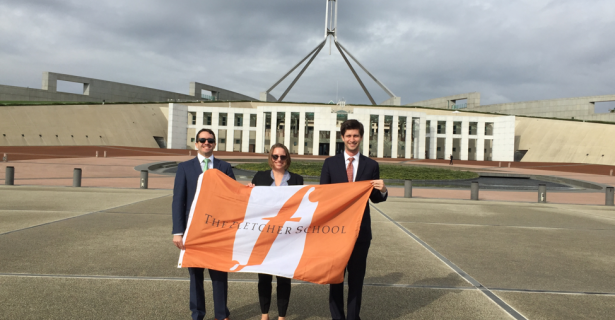In today's political climate, alliances are increasingly being called into question. The United States has played an important role in the Asia Pacific in the last few decades. Our research in the region seeks to understand the extent to which the ties between the United States and its allies, and the ties between the non-US allies, will shape the future of the region. To get a better understanding of Australian, Japanese, and South Korean perspectives of the dynamics in the region, we are traveling to each country to meet with policymakers, academics, and area experts. At this point we have met dozens of people and heard a wide array of views; sometimes in agreement, more often conflicting. These conversations have underscored the complexity and interconnectedness of the many issues facing the region, and highlighted several key concerns.
First, uncertainty. Leaders are faced with choices every day: where to focus resources, how to head off impending crises, what values to uphold, among hundreds of others. While decisions always can be delayed, inaction is a decision rife with implications. We have found an almost universal concern with the election of Donald Trump and his unclear plans for U.S. policy in the region. Internal politics are also a variable. South Korea will hold an election in May that may change the direction of policies, while Australia attempts to accommodate changing U.S. policies.
Second, inertia. While uncertainty of the political future throughout the region abounds, the alliance structure in place will hold. Military-to-military cooperation is robust, and the nations are heavily integrated with one another. That does not change overnight. Moreover, South Korean and Australian defense strategies depend on the U.S. maintaining its relationships in the region. It is in no one’s interest for the U.S. to abandon its partners.
Third, the China question. While it is unlikely that the U.S. will abruptly divest from the region in the short term, we have heard repeatedly concerns regarding the rise of China and its challenge to U.S. primacy. China is an important economic partner for all states in the Asia Pacific, but as of yet, no one outside of China is clamoring for a change to the rules based order that has greatly benefited countries the region.
Our meetings have given us a much more nuanced understanding of these issues. Our preliminary findings suggest that conflict is less likely than many assume, but the potential for misunderstanding leading to strife is high. The U.S. and its allies face increasingly difficult questions as to what the future should look like and how to achieve that vision. Policymakers need to begin having hard conversations now to forestall less desirable outcomes.

